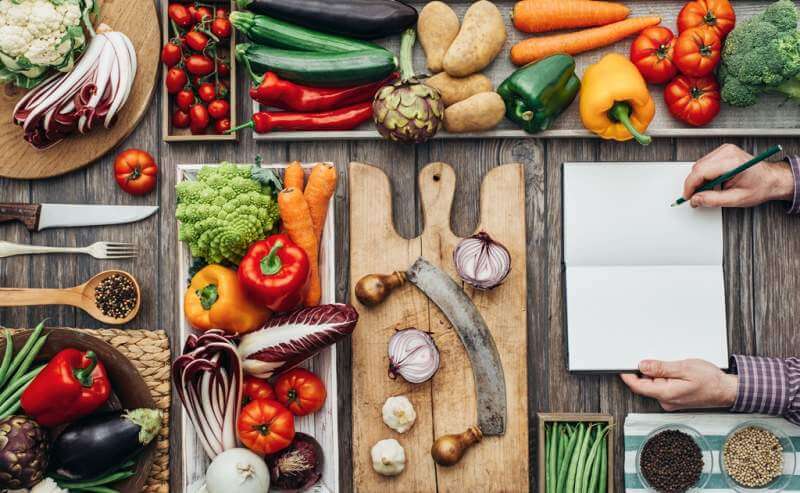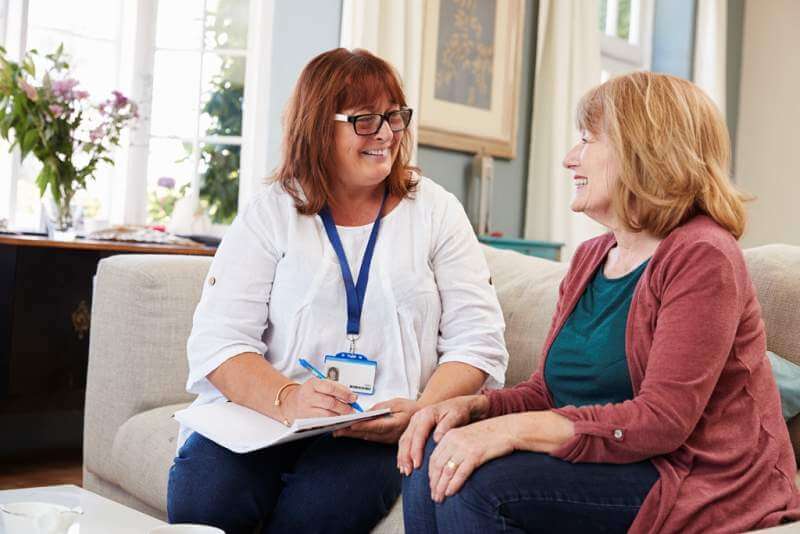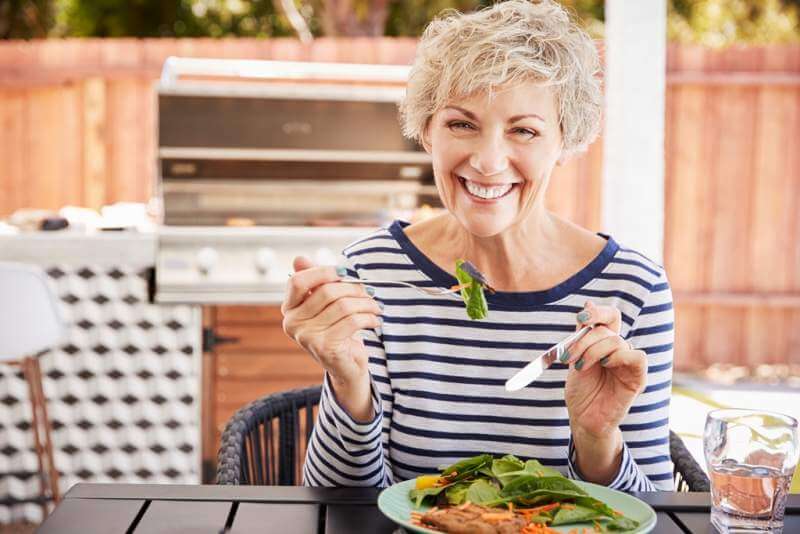Unintentional weight loss in seniors has become a common condition that can be both worrying and frustrating, and it can have very serious health consequences if not tackled. Unintentional weight loss may result from loss of a spouse, a disease, malnutrition, disability and even cognitive impairment. It is vital that it is taken seriously so that it doesn’t result in any problems and so that the senior is well nourished.
Of course, a senior may be a friend, a relative or even one of your parents, and therefore you will want to do everything you can to make sure that you are checking that weight loss is not for any serious reason, and that your loved one is eating properly and is well nourished. Therefore, let’s have a look at some of the ways on how to help a senior with unintentional weight loss.
1. Provide the elder with enough nutrients
 Good food means a healthy life. What do i mean by good food? For most people, ‘good food’ would mean a balanced diet that is made up of quality, varied ingredients, with the occasional treat. ‘Good food’ further refers to food with all of the required vitamins and minerals. A properly balanced diet is the key to better health. It’s essential to provide the elderly with a balanced diet to boost their often fragile health. Though we know that sometimes the elderly can be a little set in their ways and resistant to a change in diet, the effort is clearly worthwhile.
Good food means a healthy life. What do i mean by good food? For most people, ‘good food’ would mean a balanced diet that is made up of quality, varied ingredients, with the occasional treat. ‘Good food’ further refers to food with all of the required vitamins and minerals. A properly balanced diet is the key to better health. It’s essential to provide the elderly with a balanced diet to boost their often fragile health. Though we know that sometimes the elderly can be a little set in their ways and resistant to a change in diet, the effort is clearly worthwhile.
Let us look at the type of meals they require;
● Omega three fatty acids
The fatty acids help in the prevention of inflammation, which in most instances are the primary cause of diseases like cancer, arthritis and heart disease. These type of fatty acids are found in fish, mainly Tuna and Salmon, canola oil and walnuts.
● Foods that are rich in calcium
Calcium helps to keep the bones healthy. Foods like milk, cheese and yoghurt are rich in calcium.
● Foods containing a high amount of fibre
Fibre prevents constipation and helps in moving food smoothly along the digestive tract. Fibre is also known to reduce the chances of getting heart disease. High fibre foods include brown rice, fruits, brown bread, whole grain cereal, whole grain bread and vegetables.
● Water
It’s recommended to consume eight glasses of water in a day to combat dehydration and to ai overall health. However, such a high intake of water may not be favourable for seniors with kidney and liver disease, so merly ensure that your loved one is hydrated enough.
The key in this instance is that many elderly people who do not eat properly may be experiencingthe first stages of cognitive decline or they may even have dementia. Unfortunately, dementia has become an epidemic. It is now the biggest cause of death amongst women in many countries, and millions of people live with it every day. However, treatments are improving, and early diagnosis is key, at least according to FirstCare manager Jane Byrne.
2. Signing up the individual to guidance and counselling sessions
 A lot of older adults have lost their spouses and find it hard to deal with the grief. Loneliness, sadness and sorrow may predispose them to depression. Accepting such a loss at times is a bitter pill to swallow. Some go to the extent of losing their appetite, leading to drastic weight loss.
A lot of older adults have lost their spouses and find it hard to deal with the grief. Loneliness, sadness and sorrow may predispose them to depression. Accepting such a loss at times is a bitter pill to swallow. Some go to the extent of losing their appetite, leading to drastic weight loss.
Guidance and counselling sessions are an excellent way for them to open up to people so that they can come to terms with their sorrow and loneliness. However, whilst professional counsellors may be necessary for some elderly people, perhaps others might be just as well served by communicating with their loved ones or friends. It’s essential to spend time with them, listen to whatever they want to say, engage them in meaningful conversations. It’s an effective way to help with the loneliness that many elderly people experience, and perhaps too often overlooked.
3. Regular Checkups
 At times it’s hard to pinpoint the exact source of unintentional weight loss; therefore, it’s important to regularly visit the doctor, if only because it is better safe than sorry. As stated earlier, diseases are some of the significant causes of weight loss. Visiting a health professional will enable you to know if the individual has any major health issue or not.
At times it’s hard to pinpoint the exact source of unintentional weight loss; therefore, it’s important to regularly visit the doctor, if only because it is better safe than sorry. As stated earlier, diseases are some of the significant causes of weight loss. Visiting a health professional will enable you to know if the individual has any major health issue or not.
Furthermore, though it is most of the time probably nothing serious, the doctor usually gives some crucial tips on how to help your loved one deal with the situation.
4. Buy them food that they love
 Though above we have stressed the importance of a healthy diet, and we stand by this, sometimes to eat anything (within reason!) is better than nothing. If you are looking after your grandmother for example, you will know what she loves to eat, what are her favourite treats , and what she doesn’t like. Use this information to encourage her to eat properly. You could for example buy her one of her favourite creamcakes, or let her indulge in one of her favourite burgers, or make her a hot chocolate. Obviously you will want to be aware of any illnesses or conditions (diabetes springs to mind) that will affect what they can eat, but in the main they can eat whatever they like on a one of basis and then introduce more healthy pattern over time. And we all love a nice treat!
Though above we have stressed the importance of a healthy diet, and we stand by this, sometimes to eat anything (within reason!) is better than nothing. If you are looking after your grandmother for example, you will know what she loves to eat, what are her favourite treats , and what she doesn’t like. Use this information to encourage her to eat properly. You could for example buy her one of her favourite creamcakes, or let her indulge in one of her favourite burgers, or make her a hot chocolate. Obviously you will want to be aware of any illnesses or conditions (diabetes springs to mind) that will affect what they can eat, but in the main they can eat whatever they like on a one of basis and then introduce more healthy pattern over time. And we all love a nice treat!
The above are just the tip of the iceberg on how to help an elderly person (whether you are a carer or a family member) with unintentionally weight loss. There are multiple ways to do so. Furthermore, after every intervention has been made, it’s essential to help the elder to maintain his or her weight. Keep track of their weight by weighing them at least once a month. Perhaps record their weight in a book or on a chart. This will help you to keep track of any changes effectively.
